






40 th Anniversary with the Milwaukee Symphony Orchestra


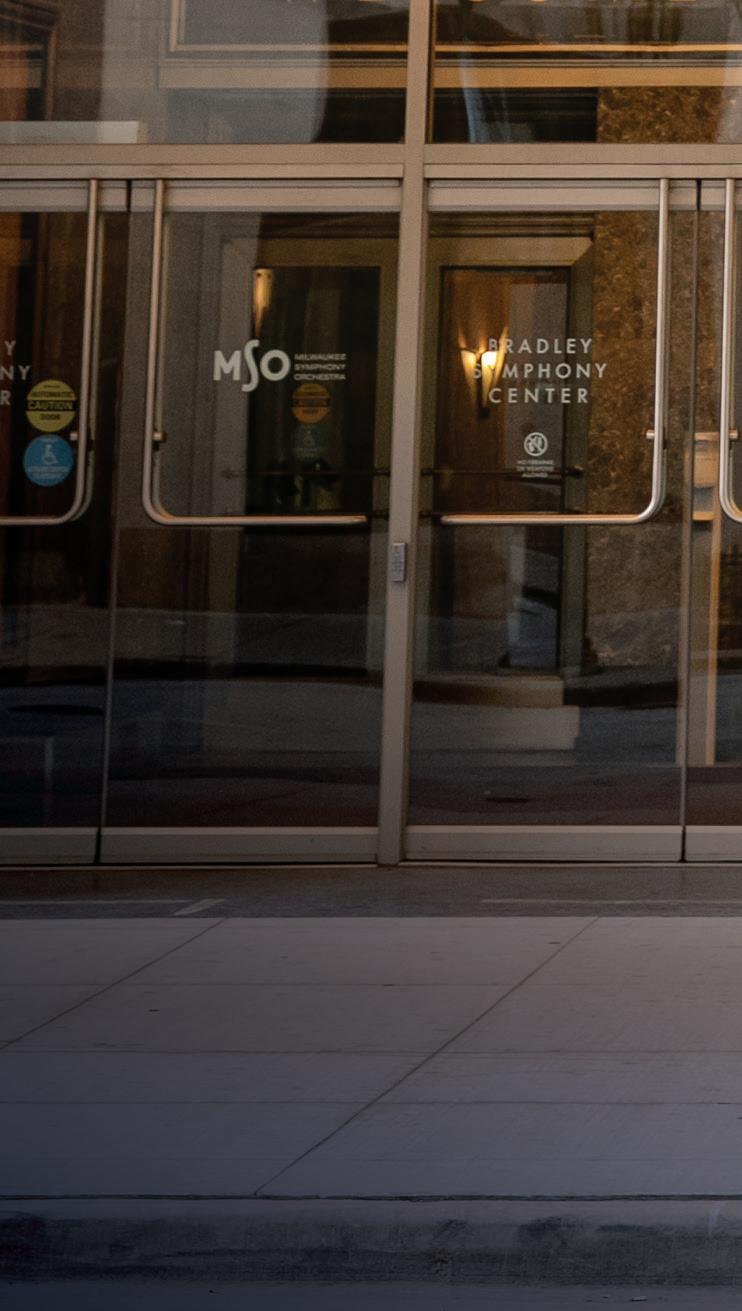







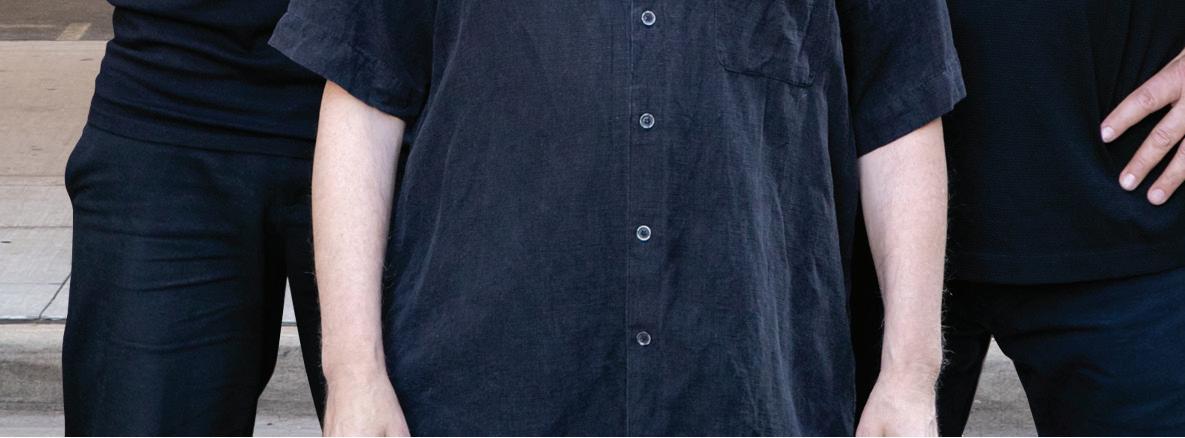

These local organizations are doing great work in our city – and they need your support.
FOR THE FIFTH YEAR, Milwaukee Magazine is helping spread the word about local nonprofits and charitable groups that are bettering our community and fulfilling a variety of different needs. In the following pages, you’ll learn about 26 remarkable organizations’ work. We hope that these stories will inspire you to donate, volunteer or both. And check out Milwaukee Magazine’s Instagram (@milwaukeemag) and Facebook (facebook.com/MilwaukeeMagazine), where we’ll be posting video interviews with these organizations. If you’re ready to make a donation, please visit milwaukeemag.com/giveback.
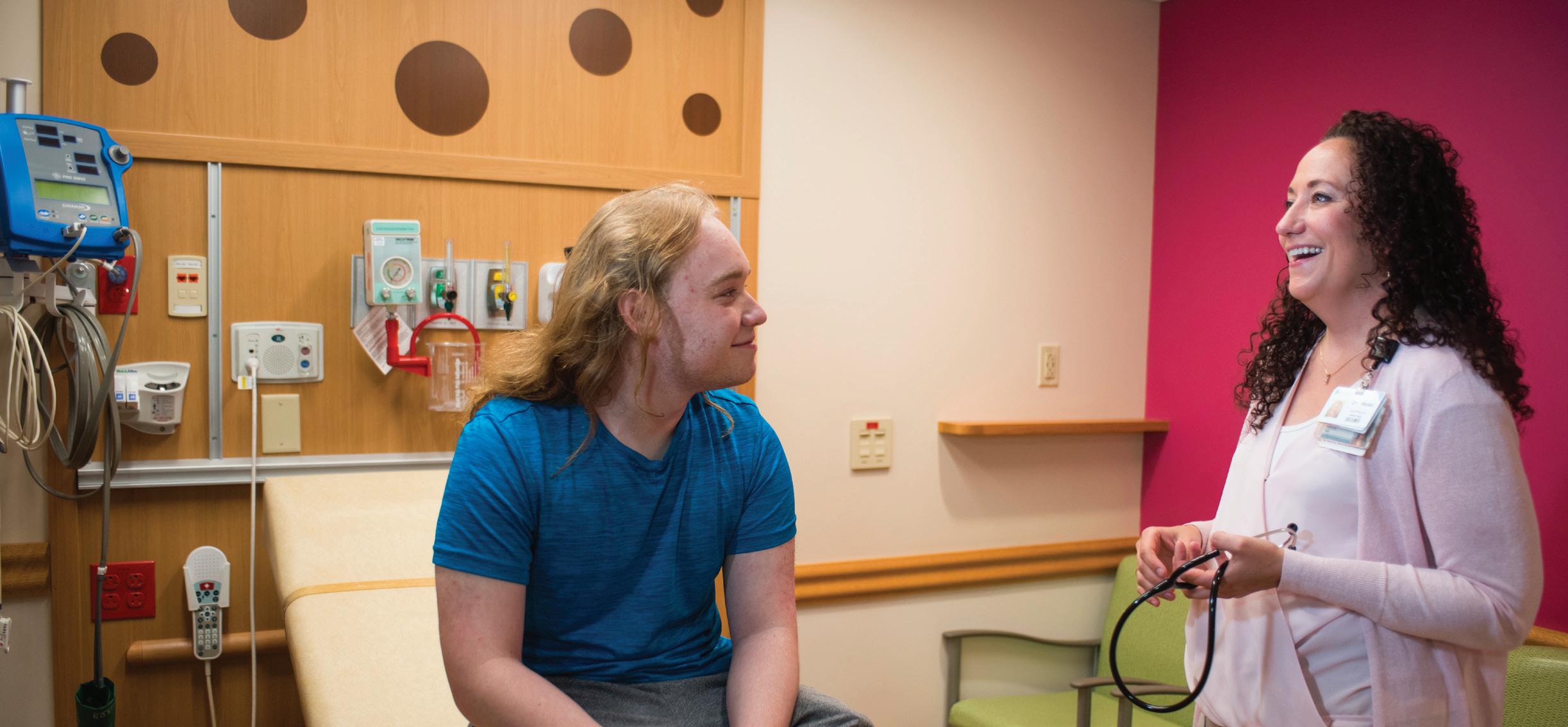
EVERY THREE MINUTES, a patient is diagnosed with blood cancer in the U.S., and every nine minutes, someone dies from it. One in eight Americans will develop a blood clot, and 100,000 die from one annually. Rare blood disorders are currently incurable. But there is hope in research.
The scientists at Versiti Blood Research Institute are making discoveries that are revolutionizing health care for blood diseases including leukemia, sickle cell disease, lymphoma and many more life-threatening conditions. Your donation helps propel that remarkable research forward.
King building on Martin Luther King Jr. Drive. This center not only focuses on blood collection but also serves the community through health care career training.
“ We established the center to give back to the community,” says Kelley McCaskill, vice president of philanthropy at Versiti.
DONATE NOW!
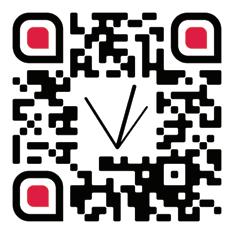
Plus, when you or a loved one receives blood at a hospital in Southeastern Wisconsin, it likely comes from Versiti, which provides lifesaving blood for patients in need of transfusions.
Both blood and financial donations are crucial to Versiti’s mission, which extends throughout the community. In October, Versiti opened a new donor center in the ThriveOn
“The center supports the local community by providing resources through a health care navigator and helping patients with sickle cell disease through diverse blood donations.”
Versiti’s current Invest in Hope campaign supports the expansion of Versiti Blood Research Institute. The goal is to raise $12 million-$15 million in donations by the end of 2027, a goal that, if met, will almost double the size of the Institute.
Expanding the research facility will give Versiti the tools it needs to pursue a bold vision: to innovate blood research; create better outcomes; and improve the lives of patients in Wisconsin, the U.S. and around the world.

Versiti Blood Research Institute progresses science and medicine for Versiti (formerly BloodCenter of Wisconsin) to enhance the lives of patients. VBRI is a catalyst of medical innovation, bringing together some of the brightest minds in research to better understand blood diseases and to find more effective treatments.
For more than 75 years, VBRI discoveries have shaped the practice of medicine, touched millions of lives in Wisconsin and around the world, and impacted scientific thinking across disciplines. Empowered by a uniquely collaborative research environment and a commitment to improving patients’ lives, VBRI plans to expand its facilities and double the size of its team over the next five to seven years.
The Invest in Hope campaign will propel VBRI into the next phase of excellence. Versiti is expanding its facilities to grow its research environment. These upgrades will fuel the discovery of new treatments and cures, giving hope to patients and families in Milwaukee and beyond.
The new VBRI facility will allow Versiti to further collaborate across disciplines, push the boundaries of scientific knowledge, and forge practice-changing discoveries for the benefit of patients.
8727 W. Watertown Plank Rd. 414-937-6238 versiti.org

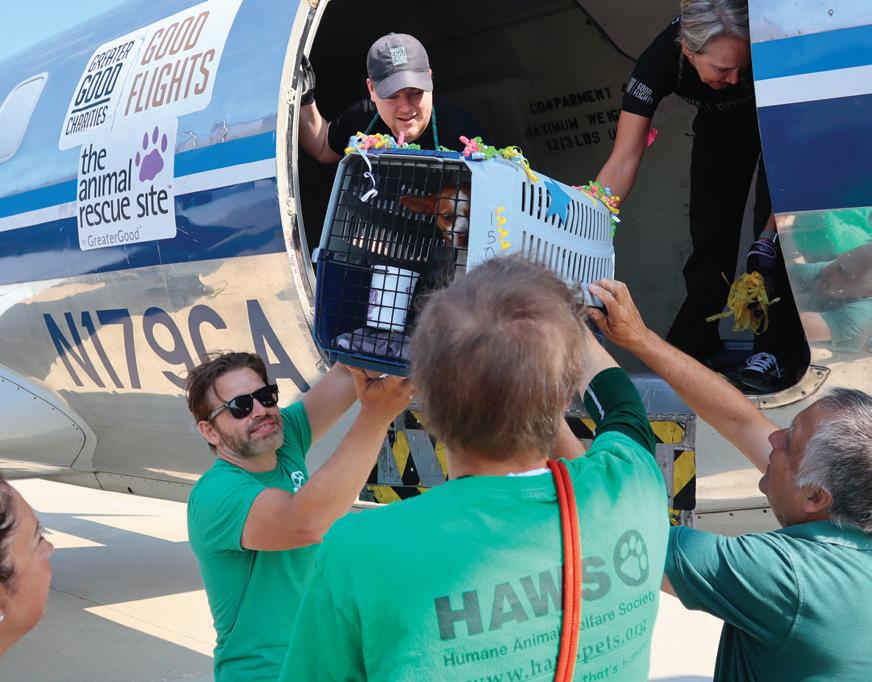
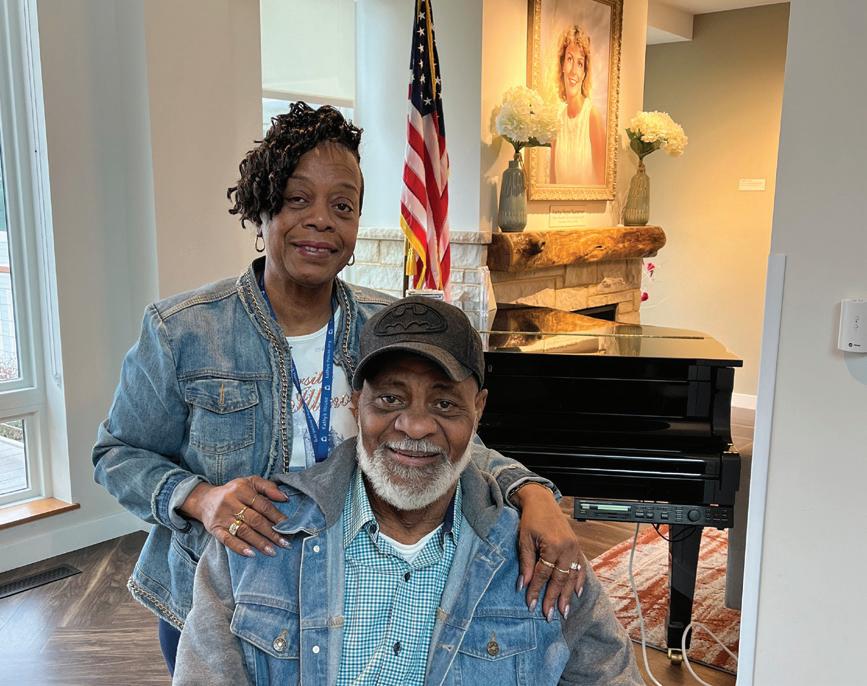

The Humane Animal Welfare Society (HAWS) is an open-admission, no-kill shelter dedicated to strengthening the relationship between animals and humans through adoptions and education – making a more compassionate community possible. HAWS leads the community in animal welfare and assures sanctuary for animals in need.
Financial support is crucial for organizational growth and to successfully carry out HAWS’ mission to help pets and their people.
Donations for pets cover both day-to-day care – food, treats, blankets, etc. – and any additional needs including surgery, medicine or behavior training.
Donations for people cover the costs of providing humane education programs for all ages.


Kathy’s House is a hospital guest house committed to providing affordable lodging and caring support in a “home away from home” environment for families who need to travel to Milwaukee for medical care.
The organization runs a 38-room house near Froedtert Hospital for people receiving treatment and their families. It includes a fully stocked kitchen, dining room, lounges, laundry, library, wi-fi, fitness center and more.
Every dollar donated to Kathy’s House serves its mission of keeping families together during a medical crisis, making it possible to access care. Seventy-five percent of guests cannot afford the full cost of their stay, but no one is turned away for an inability to pay. Ten percent of guests pay nothing at all.
Kathy’s House is also always accepting volunteers, including groups, to make meals for its guests and to staff the front desk.
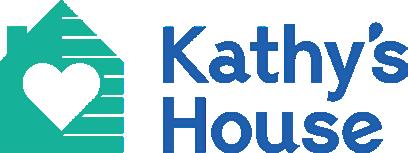
HUMANE ANIMAL WELFARE SOCIETY OF WAUKESHA COUNTY 701 Northview Rd., Waukesha 262-542-8851 | hawspets.org DONATE NOW!
KATHY’S HOUSE 9100 W. Wisconsin Ave. 414-453-8290 | kathys-house.org


EVERY MONTH, Hunger Task Force feeds an average of 50,000 people in Southeastern Wisconsin.
Over the last year, traffic has increased by 30% in Milwaukee area pantries supported by Hunger Task Force. According to city data, childhood poverty rates in Milwaukee are at 35%, which is among the highest in Wisconsin. Hunger Task Force is addressing that growing need.
“The holidays are a time when we gather with our loved ones, and the centerpiece of that is often the holiday meal,” says Matt King, CEO of Hunger Task Force. “When the community donates to Food for Families, we’re able to make sure that local families going through a tough time are able to gather around and enjoy a nutritious holiday meal.”
The program ensures bellies are full around the holidays by collecting food donations and distributing them to the community. But did you know your donated dollar goes farther than it could at the store?
“Hunger Task Force buys food in bulk,” says King. “That allows us to leverage donated dollars from the community further in the market than an individual could just going to the grocery store. In that sense, we’re able to leverage donor dollars to purchase more food and, in turn, help more people.”

Food for Families is Hunger Task Force’s annual holiday food drive, running through the end of the year.
With your support, Hunger Task Force will distribute thousands of holiday staples to neighbors in need. “We distribute food that resonates with people around the holidays,” says King. “Then we make sure that not only do they have nutritious food for the holiday, but food that will carry them through the week following.”

Hunger Task Force is Milwaukee’s free and local food bank and Wisconsin’s leading anti-hunger organization.
Every month, Hunger Task Force feeds 50,000 people in Southeastern Wisconsin.
Donations to Hunger Task Force are used to purchase and deliver healthy foods free of charge to local food pantries and meal programs. Hunger Task Force is 100% community supported by donors – since it does not charge for food, donations play a crucial role in supporting its mission.
Hunger Task Force’s Food for Families drive runs through the end of the year. You can donate food or provide a financial donation.
5000 W. Electric Ave., West Milwaukee 414-777-0483 hungertaskforce.org

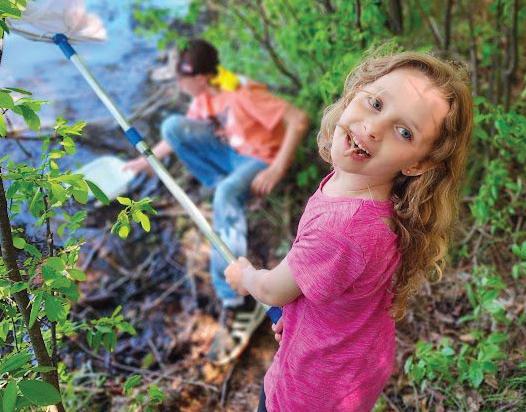


The Natural Resources Foundation of Wisconsin protects the state’s lands, waters and wildlife by providing funding, leading partnerships and connecting all people to nature.
Donations are used to save threatened and endangered species in Wisconsin, protect and expand wildlife habitat, and get children and adults outside to explore, and protect our state.
Support goes to on-the-ground conservation projects, environmental education and ensuring that NRF and its many partners in conservation will be here, caring for the land you love, for generations to come.
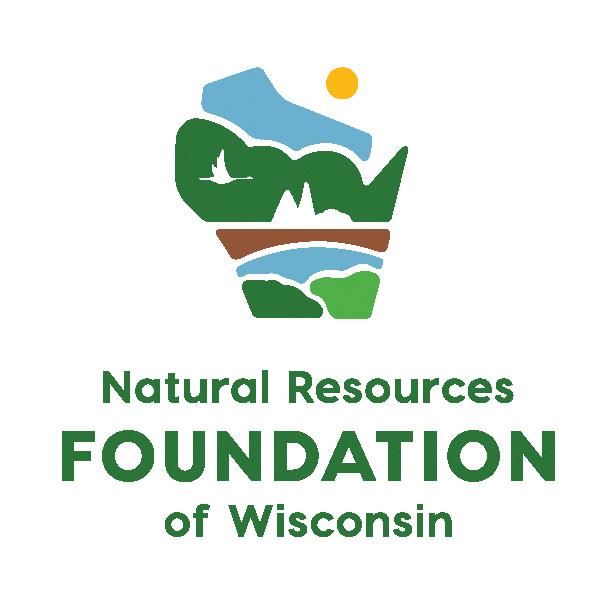
NATURAL RESOURCES FOUNDATION OF WISCONSIN
211 S. Paterson St., Suite 100, Madison, WI 53703 608-409-3122 | wisconservation.org
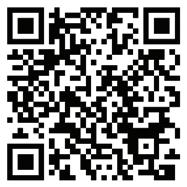
TBEY Arts Center Inc. empowers underserved youth in Milwaukee through arts education programs in theatre, visual arts, music and dance. The center serves children ages 2-19, fostering creativity and personal growth in young people from disadvantaged communities.
Donor contributions support arts education programs in theatre, visual arts, music and dance, providing creative opportunities for underserved youth ages 2-19.
Funds help sustain operational costs, expand program offerings and provide scholarships that allow underserved youth to participate in our programs, ensuring access to quality arts experiences for Milwaukee’s disadvantaged communities. These contributions enable TBEY to continue making a positive impact on the lives of young creatives through education and artistic development.
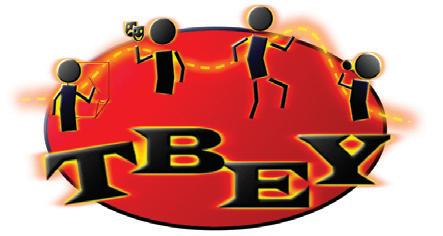
TBEY ARTS CENTER 2266 N. Prospect Ave, Suite 325B 414-562-TBEY (8239) | tbey.org
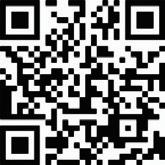

A DONATION TO the MATC Foundation, Milwaukee Area Technical College’s (MATC) philanthropic partner, has an immediate and profound effect, extending beyond the classroom directly into the community. As Wisconsin’s largest technical college, MATC serves over 30,000 students annually through 180 programs.
With 92% of its graduates remaining in Wisconsin, the school plays a critical role in sustaining the local economy by training and educating health care professionals, construction workers, technology experts, hospitality team members and more.
Without these graduates, businesses struggle to find qualified employees, and the city’s growth and momentum can fall behind.
for eligible students. And Supplies for Success is the MATC Foundation fund that pays for the tools, equipment and materials that students need to complete their programs. For example, a dental technician student spends over $1,500 on equipment. Without the help of the Supplies for Success fund, these costs could be prohibitive for prospective students.
A local donor is currently offering up to $80,000 as a 1:1 match donation for those giving to Supplies for Success.
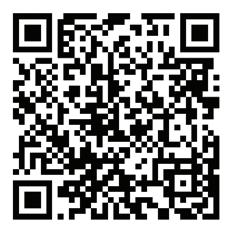
Right now, the MATC Foundation is fundraising for two critical initiatives. The first is the MATC Promise, a scholarship that provides free tuition
“For many students, $1,000 in support can be the deciding factor of whether or not to enroll in classes,” says Laura Bray, the MATC Foundation’s executive director. “A donation of that amount can be the catalyst that transforms a student’s life and leads to a fulfilling career – in effect reinvesting thousands upon thousands of dollars back into the local economy.”

As Milwaukee Area Technical College’s philanthropic partner, the MATC Foundation builds donor relationships to facilitate private investments that remove barriers to education, accelerate careers and deliver skilled talent to the Milwaukee area.
The MATC Foundation’s vision is a prosperous region built on expansive access to education and economic opportunities.
Scholarships and other student financial support remove barriers to education –technical diplomas, certificates and associate degrees – and the family-supporting jobs that an MATC education makes possible.
Students come from Milwaukee and Ozaukee counties and the Germantown area and are the backbone of the region's workforce. The vast majority of them cannot pursue post-secondary education without financial assistance and, after completing their studies, work and raise their families in Southeastern Wisconsin.
MATC Foundation
700 W. State St., M66 414-297-7687 matc.edu/foundation
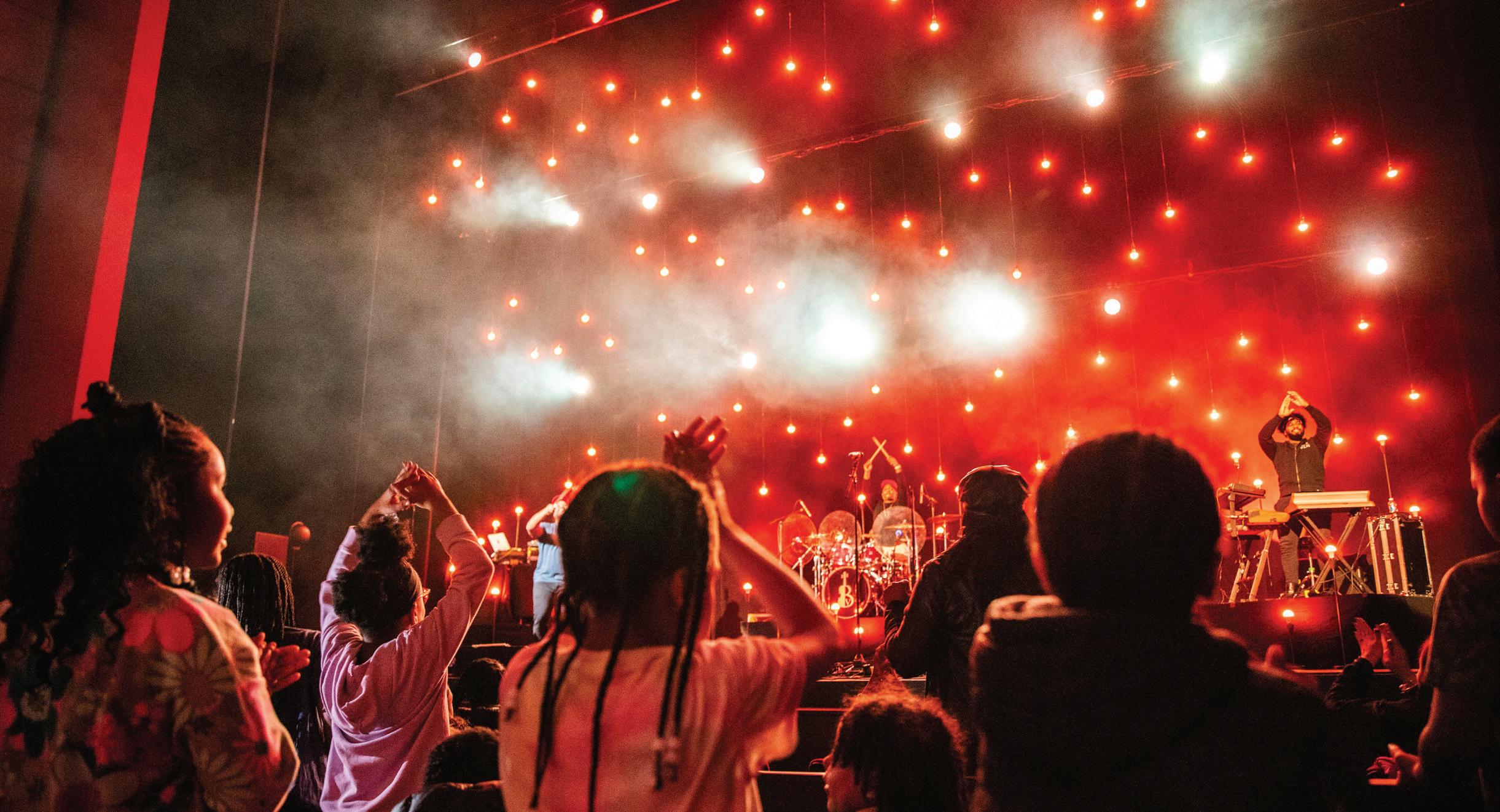
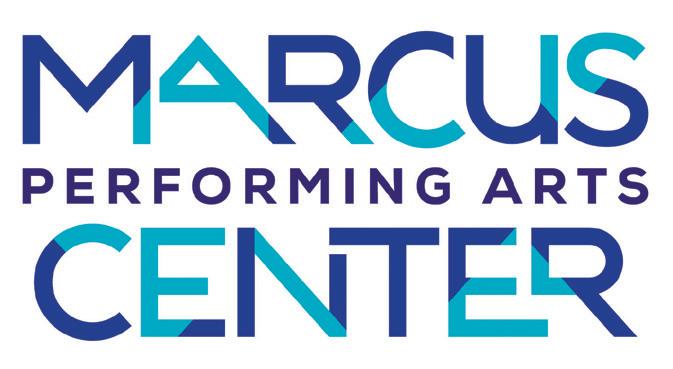
The Marcus Performing Arts Center is a performing arts venue, community gathering space, and cultural hub in Milwaukee. It provides diverse arts experiences to over 300,000 people annually.
Donations help support the art on MPAC’s stages, as well as community events and educational programs.
Donations allow MPAC to offer educational, accessible, and inclusive arts experience to the entire community. Your donation brings joy, removes barriers to the arts, fosters creativity, diversity, and inclusion, and educates the next generation through the performing arts.
Marcus Performing Arts Center
929 N. Water St. 414-273-7206 marcuscenter.org
LAST YEAR, Wisconsin ranked last in the country for public funding of the arts – a sobering reality that underscores the importance of support for historic institutions like the Marcus Performing Arts Center (MPAC). While MPAC continues to host outstanding performances and provide arts education and enrichment programming, donations are more critical than ever. MPAC provides arts experiences to over 300,000 people each year. “I still remember attending my first student matinee at the Marcus Center,” says Lory Bowman, MPAC’s vice president of marketing and communications. “We hear countless stories from people whose first exposure to the arts happened here. That’s why we’re so committed to ensuring the arts remain accessible and affordable for all.”
Sustaining this level of impact requires community support. MPAC’s current fall campaign is an opportunity to support the city’s cultural cornerstone. MPAC is also preparing to launch a capital campaign to enhance its key spaces. Planned renovations include updates to the Todd Wehr Theater, home to First Stage, which offers theater experiences designed for young audiences and families.
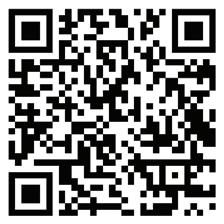
“Through this campaign, we will renovate and create spaces and experiences that reduce many of the barriers to the arts,” says Megan Huse, MPAC’s vice president of development. “Our multi-year plan focuses on projects that will reinvigorate spaces for greater accessibility, enhance audience experiences, and take art beyond our walls by bringing vibrant art to the public before they even step foot inside our space.”

SHEPHERDS COLLEGE in Union Grove is a Christian post-secondary school designed to meet the unique needs of students with intellectual and developmental disabilities (IDD). Students experience the full breadth of college life, while receiving a holistic education that prepares them for independent living and purposeful careers. Shepherds College offers accredited certificates in technology, culinary arts and horticulture, combined with essential life and social skills training.
“Unfortunately, after high school, many students with IDD face a service ‘cliff,’” says Brian Canright, president of Shepherds Foundation Inc., the college’s fundraising arm. “While their peers go on to college or work, these students often find themselves left behind. Only 20% of adults with IDD are employed. The overwhelming
majority live at home with their aging parents, their social networks shrink, and the skills they developed over the years start to fade.”
Based on the belief that people with IDD have been created for a purpose, Shepherds College helps students with IDD discover and maximize their God-given potential. Since opening in 2008, Shepherds College has awarded over $5 million in scholarships to support students with financial need. Shepherds College is working on plans to establish branch campuses and offering curriculum and training to organizations worldwide.
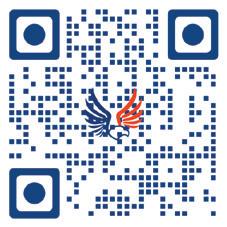
Shepherds College is accepting donations for its Christmas appeal through the end of the year. To help transform the lives of students with IDD, visit the college’s website and donate to help fund scholarships or other initiatives.
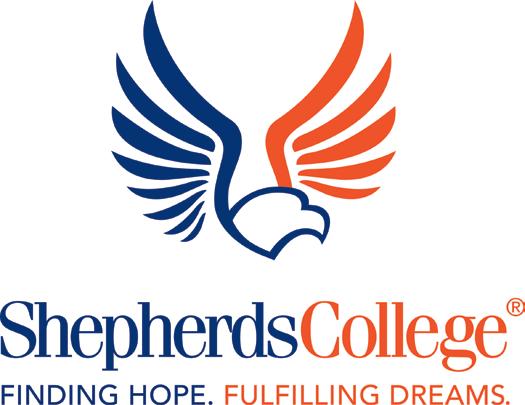
Shepherds College provides a uniquely designed, post-secondary education for students with intellectual and developmental disabilities, equipping them with occupational training and life skills for independent living.
Donations to the Shepherds College Annual Scholarship Fund ensure that students with financial need can access the education and training they need to succeed.
1805 15th Ave., Union Grove 262-878-5620 shepherdscollege.edu

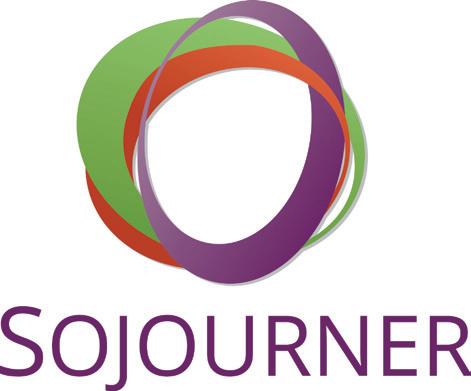
Sojourner’s mission is to transform lives impacted by domestic violence, and to help those affected achieve safety, justice and well-being.
The center provides emergency shelter, personal care items, legal resources, case management, support groups and more to survivors and their families.
Donations support: Sojourner’s 24-hour emergency shelter operations and resident needs such as clothing and hygiene items; programs, including children’s advocacy, life skills, financial education, case management and employment assistance; and healing services, such as individual and group counseling for survivors of domestic violence and their families.
Sojourner Family Peace Center
619 W. Walnut St. 414-276-1911 familypeacecenter.org
SOJOURNER FAMILY PEACE CENTER is Wisconsin’s most comprehensive domestic violence resource. At the heart of their lifesaving work is a central concept: connection.
“The most life-saving variable in terms of domestic violence, safety and homicide is connection,” says Carmen Pitre, Sojourner’s CEO and president. “Our completely confidential hotline is open 24 hours a day, ready to connect people with resources and programs that can create a pathway out of violence.”
Last year, that hotline received 13,500 calls from survivors, law enforcement, family members and hospitals. Sojourner served nearly 10,000 of those clients in 2023. The center provides emergency shelter, personal care items, legal resources, case management, employment assistance, support groups and other resources that make positive and lasting change for clients and their
children escaping abuse.
“We can do everything across the spectrum, from a call for help, to emergency shelter, to helping people navigate the court system,” says Pitre. “Then we also offer services on through the healing process, such as support groups, activities for children, camp and beyond.”
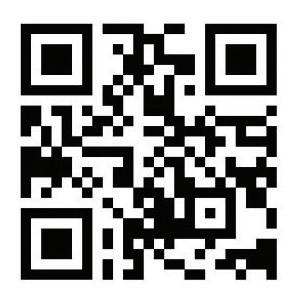
Sojourner’s impact would not be possible without support and funding from members of the community. In addition to year-round giving, Sojourner’s annual “Be the Light” fundraising event gives corporations and sponsors an opportunity to get involved, and introduce others to their extensive and impact ful work.
“For some, Be the Light is their first introduction to our work,” says Pitre. “And inevitably, there could be a survivor sitting in that room. There could be someone who knows someone needing help. It’s important for fundraising, but also for awareness.”

IN ADDITION to its sheer beauty, Lake Michigan offers many recreational opportunities. But experiencing the lake from a sailboat can seem out of reach to many.
Milwaukee Community Sailing Center is changing that. The center, which has operated since 1980, offers youth and adult sailing lessons, free sailing experiences for people with disabilities and school groups, and hosts special events. “Everything that we do is about giving Southeastern Wisconsin residents the ability to get out and use this awesome resource,” says executive director Holly Church. Through outreach, Milwaukee Community Sailing Center works with underserved communities to offer youth and teens a healthy, enriching environment to explore and learn. These classes not only introduce a new sport, but provide a safe and positive
space. This experience broadens their horizons and cultivates skills and confidence.
This year, the Sailing Center provided instruction to 742 adults; 975 kids, through its outreach program and youth classes; and 628 people with special needs through its adaptive programming.
In 2025, they want to do more, but they need expanded space to do so. “We’re busting at the seams here at the Sailing Center,” says Church. “We are in desperate need of another building.”
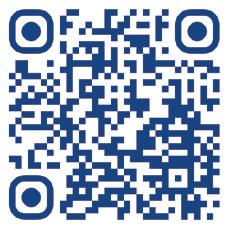
The Sailing Center will begin fundraising in spring to raise the $5 million needed for this expansion. Donations can be made for this initiative, or directly to any of their other programs, through their website or by contacting Teresa Coronado, outreach and development director. With a bigger facility, the Sailing Center can share the magic of Lake Michigan with more Milwaukeeans.

MCSC’s mission is to promote sailing and make Lake Michigan available to everyone in the Milwaukee community through quality programming.
The center provides sailing, regardless of age, ability or financial concerns, to kids, teens, adults and families.
Donor contributions can be directed to a number of areas of need, including the upcoming capital campaign; supporting free sailing opportunities for people with disabilities; free STEM & Sailing programs for middle schoolers; and scholarships for people who might not otherwise learn to sail due to financial concerns. These programs all focus on historically underrepresented minority groups in the Milwaukee area.
Milwaukee Community Sailing Center
1450 N. Lincoln Memorial Dr. 414-277-9094 sailingcenter.org
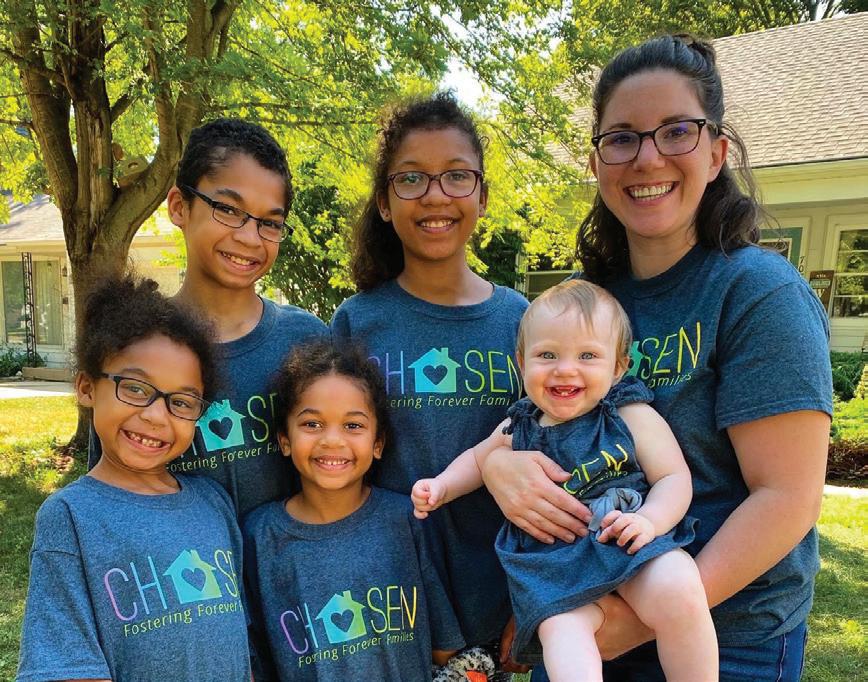
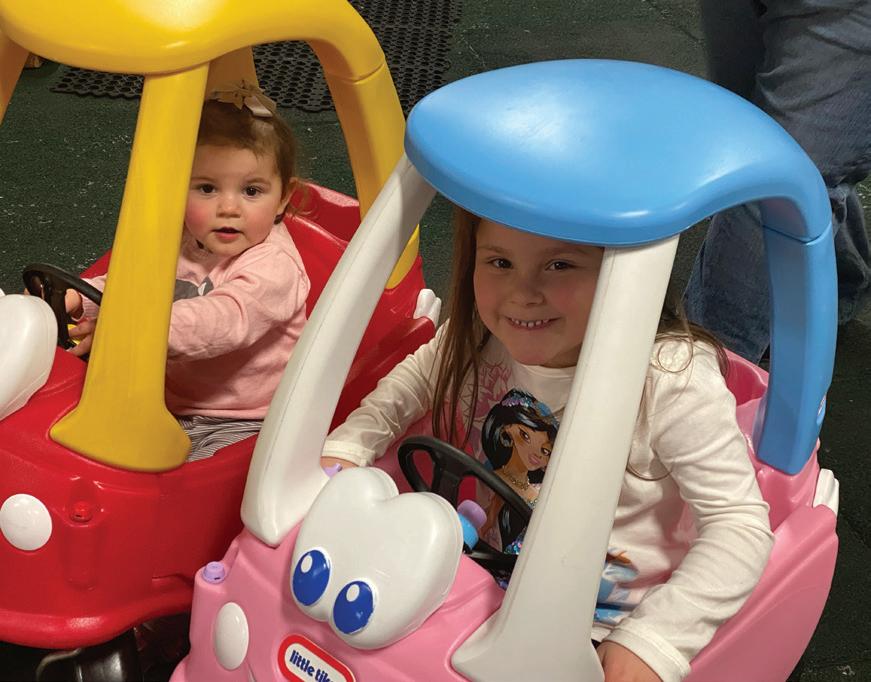
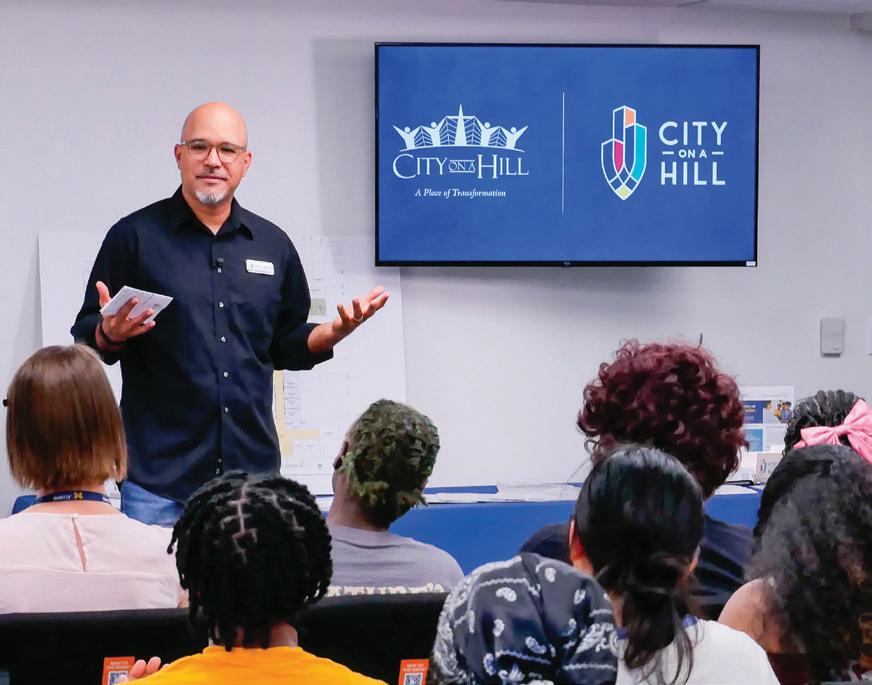
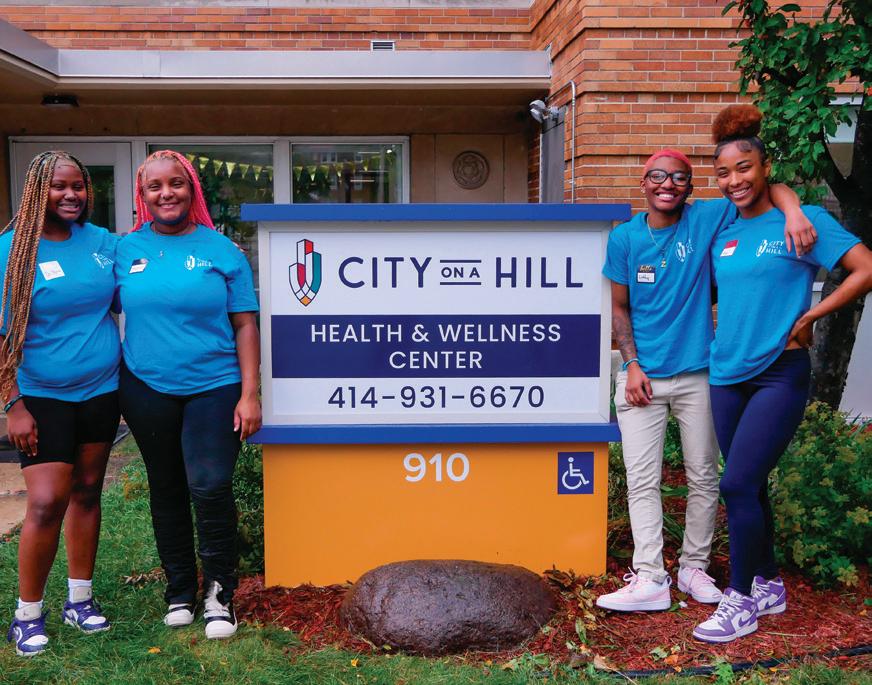
Chosen Inc. of Wisconsin is a nonprofit Christian ministry that supports and journeys with Southeastern Wisconsin foster and adoptive families. It provides a range of goods needed for child care, hosts community events, raises awareness and more.
Donor funds help to support the Family Closet, Chosen’s largest program, which provides clothing, toys, school supplies, baby/special needs equipment and other goods needed for children in foster and adoptive care. Families can shop, free of charge, for supplies for children in their care.
Donations also support Chosen’s Family Outreach programs, including Vacation Bible School, Backpack Giveaway, Walk on the Wild Side for Foster Care and Toypalooza.
Chosen’s annual Open Hearts, Open Homes Gala celebrates and supports foster and adoptive families. The upcoming gala is on April 5 at Davians (N56 W16300 Silver Spring Dr., Menomonee Falls). Tickets are available at choseninlove.org/gala
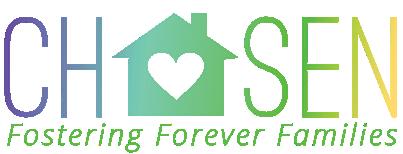
CHOSEN
400 Travis Ln., Suite 30, Waukesha 262-724-6736 | choseninlove.org
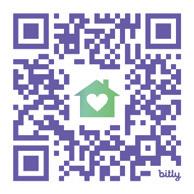
City on a Hill is dedicated to ending all forms of poverty affecting Milwaukee’s urban families in the city’s lowest-income neighborhoods. By restoring hope, enhancing quality of life and advancing justice for all, the organization transforms our city and its families.
City on a Hill provides comprehensive health services – including behavioral health care, medical outreach, telehealth, nursing triage and health literacy programs – to meet the diverse needs of the community.
The organization also operates a youth center – a safe haven where children can come after school to participate in life skills workshops, access a computer lab, create art, receive leadership training and simply play.
Your donations support City on a Hill’s new holistic Health and Wellness Center, providing vital medical, dental and behavioral health services to those in need.
Additionally, your generosity fuels City on a Hill’s Family Mobility Initiative, offering financial education and workforce development services to empower underserved communities.
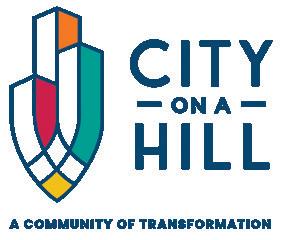
CITY ON A HILL
2224 W. Kilbourn Ave. 414-931-6670 | cityonahillmke.org

FOR NEARLY 50 YEARS, Community Advocates Inc. has been a vital part of the Milwaukee community, providing advocacy, services and connections for those in need. The Milwaukee Women’s Center, a division of Community Advocates, is one of only two 24/7 emergency shelters for survivors of domestic violence in Milwaukee County, serving over 2,000 adults and children annually. Next spring, the center will celebrate 45 years of serving the community with an event to raise awareness and funds.
and achieve academic success. Families receive tailored support to address housing challenges, set financial goals and access critical resources. The program impacts over 250 families with school-age children annually, with 96% of households maintaining stable housing after they leave the program.
DONATE NOW!

The Autumn West Safe Haven is another Community Advocates program – a housing refuge for Milwaukeeans experiencing homelessness and severe mental health challenges. Community Advocates’ Siemer Family Homelessness Prevention and Case Management Program helps low-income families stabilize their housing so their kids can stay in school
These are just three of Community Advocates’ 40-plus programs and services, which also include help with energy and rent assistance, substance use treatment, homeless outreach, and disability advocacy.
“We bring resources to one place,” says Maudwella Kirkendoll, the Chief Operating Officer. “If someone comes in and is behind in rent, we know that often there are other things at play. So we look at the other issues to provide comprehensive solutions and tools so they can safely become more independent.”

Founded in 1976, Community Advocates, Inc. serves over 50,000 individuals and families annually with advocacy and services that meet their basic needs every year. With over 40 programs, Community Advocates helps low-income individuals and families with utility assistance, housing stability services, emergency shelter and much more.
Every contribution directly supports programs that provide stability, safety and essential resources for individuals and families facing poverty, domestic violence, mental illness and homelessness. Donations allow Community Advocates to purchase critical items such as sheets, pillows and socks, ensuring that clients have basic necessities. If you are interested in making an in-kind gift, you can do so through the wish list on the How to Help section of Community Advocates’ website.
728 N. James Lovell St. 414-449-4777 communityadvocates.net

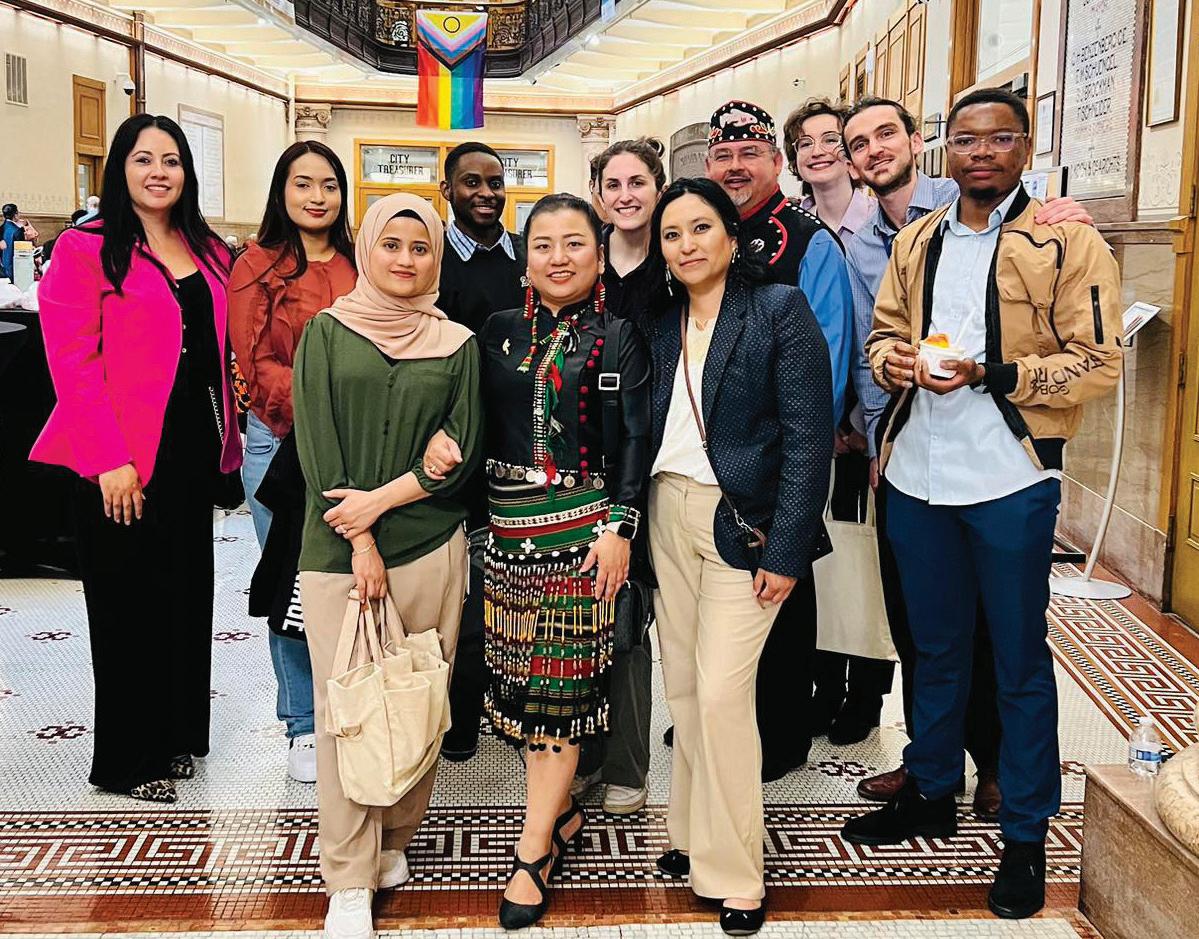
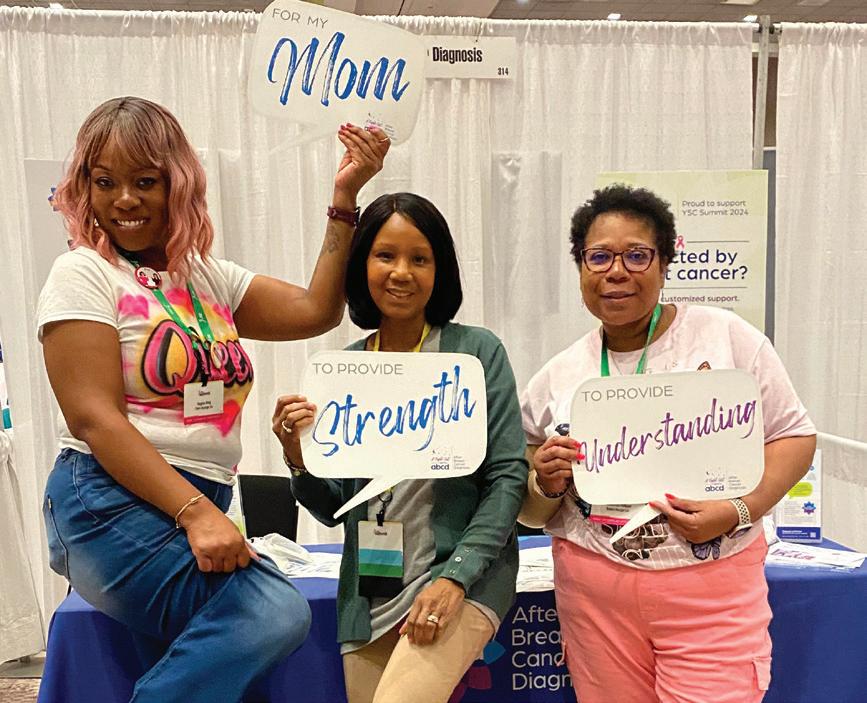

The International Institute of Wisconsin (IIW) is an organization dedicated to the promotion of international cooperation, understanding, and a multiethnic, multicultural perspective through education, arts, exchange, communication, social activities, and immigration and naturalization services. The core focus of the organization is immigration and naturalization services, but it has also greatly expanded its services to include translation assistance and educational programs.
The IIW initiates, coordinates and sponsors refugee resettlement, language services, immigration assistance, education and training, and an international visitor leadership program.
Donations are used to help with refugee resettlement services, such as providing clothing and household goods for those who can’t afford them.
Funds are also used to provide educational programs for refugees, including translation services.

INTERNATIONAL INSTITUTE OF WISCONSIN
1110 N. Dr. Martin Luther King Jr. Dr., Suite 420 414-225-6220 | iiwisconsin.org

Headquartered in Milwaukee, ABCD: After Breast Cancer Diagnosis offers free, one-toone emotional support for anyone impacted by breast cancer, anywhere, at any stage, including metastatic.
Working as a complement to medical care, ABCD’s signature service is creating a unique match between someone who needs support and an ABCD Mentor who not only shares a similar diagnosis and treatment plan, but also has common interests, career paths and family dynamics. With over 250 diverse Mentors around the country and a virtual platform that makes it easy to request support from anywhere, ABCD has supported more than 110,000 people in Wisconsin and across the United States.
For 25 years, ABCD has given the invaluable gift of emotional support as a free service to anyone who needs it. ABCD relies 100% on the generosity of donors.
More than 82% of donations directed to service delivery, but funding is also channeled toward Mentor recruitment and training, crafting educational materials for health care professionals and establishing partnerships in Wisconsin and beyond.
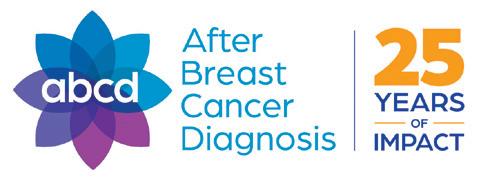
ABCD: AFTER BREAST CANCER DIAGN0SIS
5775 N. Glen Park Rd., Suite 201, Glendale; 414-977-1780 abcdbreastcancersupport.org


FOR OVER 165 YEARS, the YMCA of Metropolitan Milwaukee has empowered our community through a holistic approach to mind, body, and spiritual wellness. From its inception in 1858, the YMCA has remained a vital member of the greater Milwaukee community, focusing on youth development, healthy living, and social responsibility programming.
Among its many offerings, the YMCA provides high-quality, affordable before and after school care for over 1,000 children each weekday. This care gives children a safe space to grow academically, physically, and socially, while offering essential support for working parents.
where they are encouraged to grow and learn in an inclusive and diverse environment surrounded by positive and caring mentors.”


One parent shares, “The program is not solely childcare for before and after school while parents work. The program is continued education for our children in a supportive setting
The YMCA’s program includes homework assistance, STEAM activities, social-emotional learning, arts and crafts, physical fitness, nutrition, and service-learning projects. Conveniently held on-site at 27 public, private, and charter schools in the greater Milwaukee area, these programs alleviate transportation concerns, making drop-off and pick-up easy for parents. With its commitment to equity and inclusion, the YMCA offers financial assistance ensuring accessible care for families of all backgrounds. The YMCA is proud to be a trusted partner for schools and families, inspiring learning, resilience, and lifelong wellness.
The YMCA of Metropolitan Milwaukee has been a part of the lives of children and families in the greater Milwaukee area since 1858. The Y’s commitment to equity and inclusion is empowered by the organization’s vision “to be a thriving organization that drives positive impact with measurable social and health outcomes in youth development, healthy living, and social responsibility.”
The YMCA relies on donations to ensure that everyone – no matter their income level – has the opportunity to learn, grow, and thrive at the Y.
Financial support through grants, sponsorship, and individual gifts help the Y keep membership affordable and programs accessible for all.
YMCA of Metropolitan Milwaukee PO Box 2174, Milwaukee, WI 53201 414-354-9622 ymcamke.org

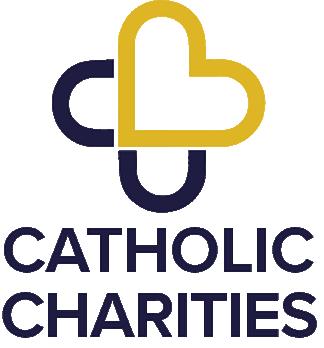
Catholic Charities provides social services for individuals and families affected by poverty. It provides culturally and linguistically competent services with dignity and respect for people of any religious background living in the 10 counties of Southeastern Wisconsin.
This charitable organization helps people who have no other support system. It cares for the well-being and stability of people with low or no income. These are individuals who are experiencing emotional or financial crisis, are pregnant or are new parents, are seeking to adopt a child, are refugees and immigrants, or older adults and adults with intellectual disabilities.
Donations are used to fund counseling and care management services, quality legal services for refugees and immigrants, and services to assist pregnant women, seniors and adults with disabilities. These services are provided at no cost for people with low or no income.
PO Box 070912, Milwaukee, WI 53207-0912 414-769-3400
ccmke.org
THE MISSION OF Catholic Charities is clear: to serve anyone in need, particularly those hardest hit by poverty. In Milwaukee, where rents have surged, Catholic Charities is helping people navigate the complex processes involved in securing housing. The team also provides a network of programming in mental health, pregnancy and parenting support, refugee and immigration services, and more.
“ People often tell us, ‘I’ve made 30 calls, and you’re the only ones who answered,’” says Susan Howland, the director of community outreach.
In just a few weeks, Timothy received life-changing news: he had a new home. “The day he signed his lease, he was so happy,” his case worker recalls. “He couldn’t stop smiling as he talked about hanging pictures on the wall.”

For people like Timothy, working with Catholic Charities is life-impacting. After losing his home and family to a tragic house fire, Timothy spent six years alone in a shelter, making calls to many organizations for help without success. Catholic Charities responded, helping him apply for senior housing, handling forms and online submissions he was unable to fill out himself.
“There are so many of the people, whether they’re working or receiving a disability or Social Security check, that are barely scraping by,” says Howland. “They just can’t afford one more hit. From 2023-24, rent in Milwaukee went up 6.5%, and that’s on top of all the other times it went up. I would say it’s dire.”
For those who’ve faced countless rejections, a listening ear and dedicated case worker can mean the difference between continued anguish and a safe and healthy future. Through generous community donations, the organization also provides essentials – hygiene products, bus passes, housing application assistance – to help people like Timothy and their families rebuild their lives.

BUILDING COMMUNITY, providing resources, and empowering individuals with Autism and their families – this is the mission that moves the Autism Society of Southeastern Wisconsin forward. The Autism Society SE WI serves over 8,000 people across nine counties every year, all through donations from the community. With Autism diagnoses rising to 1 in 36, according to the CDC, the organization’s mission is more critical than ever.
The Autism Society SE WI’s Reimagine Future Autism Support in Wisconsin campaign is seeking to raise $100,000 by the end of the year to fund programming. Donations will support initiatives like Bike Camp, a yearly five-day event where participants build confidence through learning to ride a bike independently. Another is the SOAR Airport Rehearsal, a unique program collaboration with airlines that equips individuals with Autism and their families with tools to travel confidently.
“We want families to feel comfortable participating in community events,” says Rechelle Chaffee, executive director. “We work to ensure that the community, in turn, understands and embraces what Autism can look like.”
Next year, the Autism Society SE WI is hosting the first-of-itskind spring break event and conference at the Wilderness Resort in the Wisconsin Dells.

“So many families with individuals on the Spectrum don’t travel during spring break because of the challenges,” says Chaffee. “So we are encouraging families to come join us for a small staycation at the Wilderness Resort where there’s going to be resources and support for education, as well as a lot of fun. We’re working with the Wilderness Resort to create the first ever sensory-modified resort event.”
Donations to the Autism Society SE WI bring these activities and many more to individuals on the Spectrum who may otherwise go without.
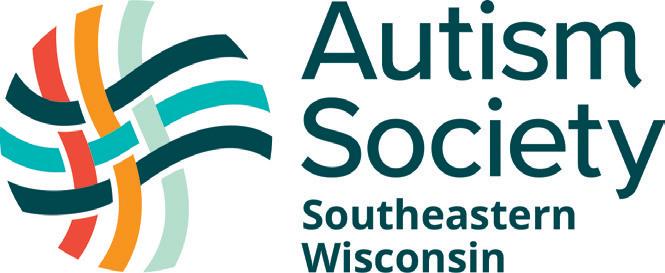
The Autism Society of Southeastern Wisconsin’s mission is to create connections, empowering everyone in the Autism community with the resources needed to live fully. The Autism Society SE WI has connected the nine counties in Southeastern Wisconsin with programs for individuals at every stage of their Autism journey, from early childhood to adults as well as families, caregivers and educators.
The Autism Society SE WI aims to provide a “Spectrum Of Opportunity” to individuals and families affected by Autism through advocacy, education, information and referral, support groups and family and children's programming. Programs include Bike Camp, First Stage Sensory-Friendly performances, STEAM Maker Camp for teens, LEGO Club, SuperStars, and New to Autism classes.
Donations help the Autism Society SE WI remain the place those in the Autism community turn to for information and resources.
The Autism Society of Southeastern Wisconsin 3720 N. 124th St., Suite O, Wauwatosa 414-988-1260 assew.org

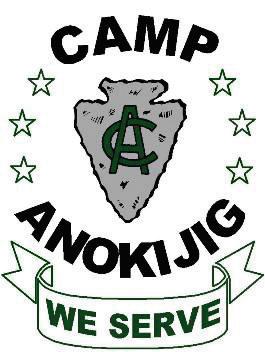
Camp Anokijig, a leader in youth camping since 1926, offers life-changing experiences to nearly 3,000 kids every year through a community based on new friends, positive values, personal growth, great adventures and outrageous fun. An experience within the Anokijig community leaves a lasting, positive impact.
Donations enhance programming, maintain camp facilities and ensure a safe, enriching environment for all campers.
Donations also help to fund camp scholarships and the teen leadership program, giving more children access to life-changing experiences and personal growth opportunities.
Camp Anokijig
W5639 Anokijig Lane, Plymouth 920-893-0782 anokijig.com
“ WE BELIEVE THAT an experience at camp is an instrumental part of creating successful and engaged adults who can care for themselves and the community around them,” says Hannah Wisman, the director of Camp Anokijig.
The magic of camp – forging friendships, learning new skills, challenging yourself physically and mentally, being a part of nature and a larger community – can be cost prohibitive for many families. Camp Anokijig’s goal is to never turn a child away due to their family’s financial situation.
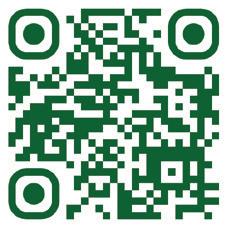
The camp offers annual scholarships, enabling over 3,000 children to attend since 2007. Anokijig awards partial, as well as full, scholarships – in 2024, 64% of the scholarships were full, and the average “campership” covered
over $943 of the $995 cost for a full week of resident summer camp. Donations not only support these scholarships, but also help the camp’s Bridge to the Future capital campaign. The $6.9 million goal will help construct the multiuse Centennial Lodge at the camp. “The new building will be a health facility, storm shelter, dining facility, and office space, allowing us to serve the community year-round,” says Wisman. The project also includes improvements to the Western Lodge dining hall and staff housing upgrades.
In addition to financial contributions, Camp Anokijig thrives with the help of many volunteers. From teen leaders to weekend program volunteers, a dedicated team brings the magic of camp to life every season, and throughout the year.

UNITED WAY of Greater Milwaukee & Waukesha County is tackling some of Southeastern Wisconsin’s most pressing challenges. The organization has four key initiatives: ending family homelessness, reducing barriers to employment, bridging the digital divide, and supporting the mental wellness of high school students. United Way funds dozens of charitable agencies across the region that provide vital programs to tens of thousands of people. With a 2024 fundraising goal of $57.5 million, every dollar counts toward those efforts.
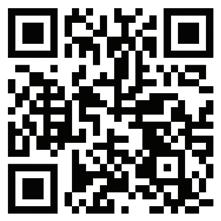
In its work to end family homelessness, United Way has already met the criteria for success it set out in two of the four counties it serves – the first local United Way in the country to do so – and it plans to expand its efforts with the help of donations.
The United Way team is also breaking down barriers to employment, with a goal of helping 15,000 people jumpstart stable careers by 2029. Their technology-equity initiative will help to close the tech divide by giving 50,000 computers to those in need by 2027, providing essential technology equipment that can help pave paths to employment and connect community members with vital resources.
And United Way’s Teen Mental Wellness: Empowering Minds initiative will provide mental health wellness programming for 21,000 high school students by 2030. Donations fuel all that United Way does, with contributions making Milwaukee, Ozaukee, Washington and Waukesha counties stronger, safer and more equitable for all.
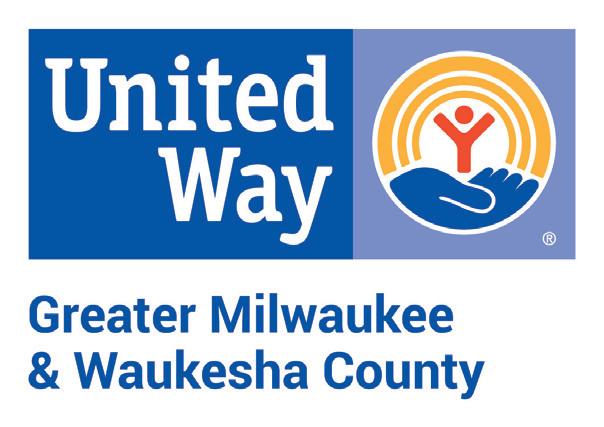
United Way of Greater Milwaukee & Waukesha County changes lives and improves the community by mobilizing people and resources to drive strategic impact and lasting change for people in need. United Way has always had one simple purpose: help people live better lives.
United Way funding supports a network of agencies that provide vital programs to tens of thousands of people in our region. Donations to United Way support programs in Milwaukee, Ozaukee, Washington and Waukesha counties.
United Way of Greater Milwaukee & Waukesha County
225 W. Vine St. 414-263-8100 unitedwaygmwc.org
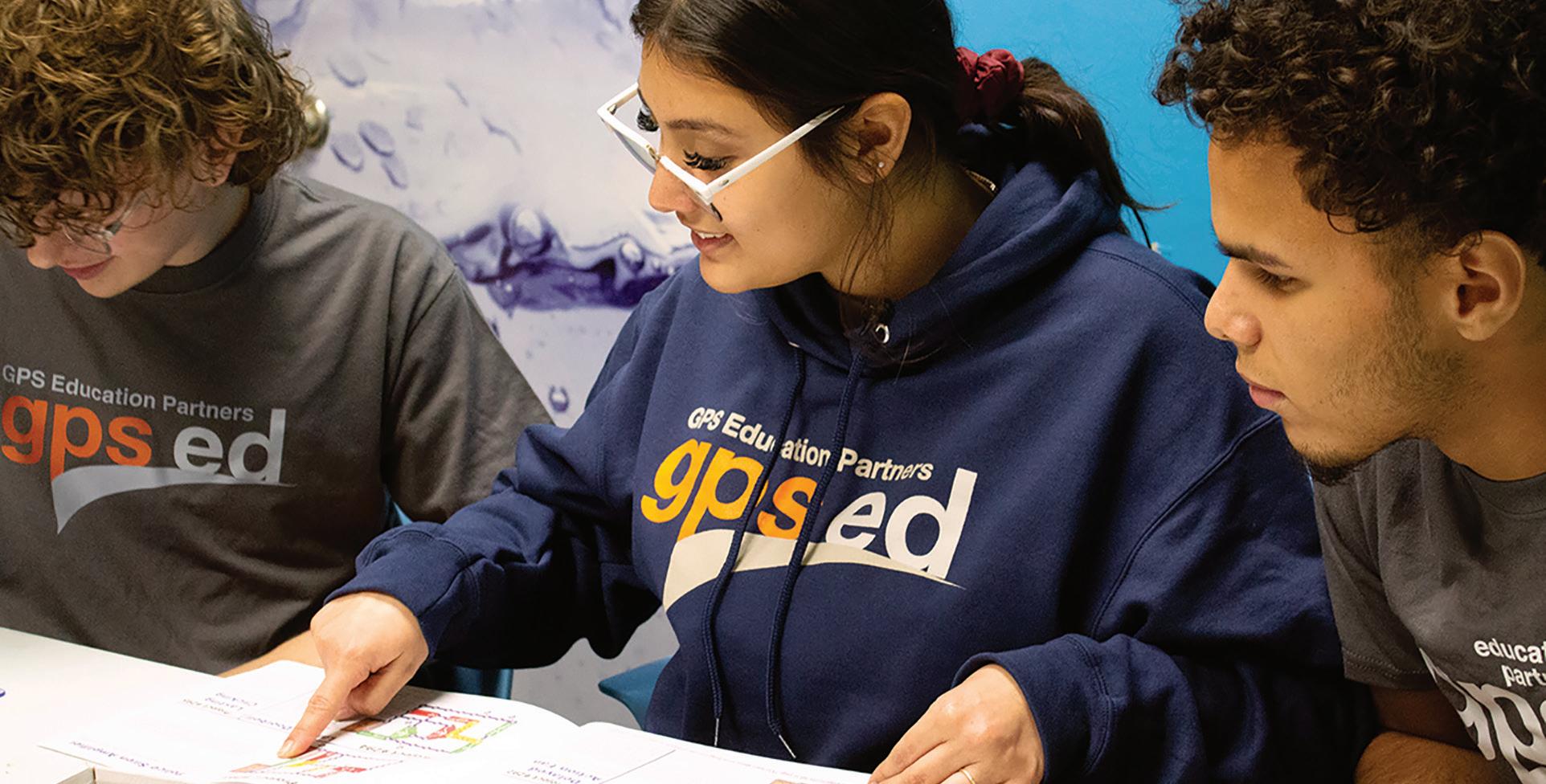
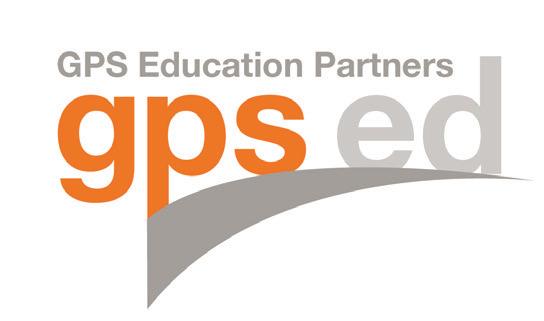
GPS Education Partners (GPS Ed) is a nonprofit organization committed to creating equitable access to educational opportunities, ensuring all students have a pathway to succeed. It provides students with work-based learning experiences at businesses across the region.
By partnering with businesses, schools and communities, GPS Ed bridges the gap between education and workforce readiness, empowering young people to gain valuable skills and pursue meaningful careers.
Donations help close the gap in funding from businesses and schools, ensuring program costs are not passed down to families.
Funds enable GPS Ed to invest in new technologies, equipment and learning resources.
Contributions also go toward covering essential costs, such as transportation and meals, removing barriers that could otherwise prevent students from participating in GPS Ed programs.
GPS Education Partners
N19 W24075 Riverwood Dr., Suite 300, Waukesha 262-226-2001 gpsed.org
NEXT YEAR MARKS the 25th anniversary of GPS Education Partners, a nonprofit that prepares hundreds of students across Wisconsin for fulfilling careers. The organization partners with businesses and schools to provide work-based learning experiences to high school students.
These juniors and seniors have the chance to work hands-on with manufacturing, technology, and many more businesses, gaining hands-on experience in the workplace that prepares them for rewarding careers.
our innovative Education Center & Youth Apprenticeship Program, we connect local high school students – especially those who thrive outside traditional education – with hands-on experiences and career exploration opportunities.”

Simultaneously, GPS Ed supports businesses and the local economy by training the talent they need to operate and creating a pipeline of prepared workers.
“We believe that a four-year college degree should not be the only measure of success. Many students seek alternative routes to fulfilling careers,” says Laura Derpinghaus, GPS Ed’s director of marketing and fund development. “Through
GPS Ed students don’t have to pay for their apprenticeships – the cost is covered by schools, businesses and donations. Besides the apprenticeships themselves, those donations also cover additional costs, such as transportation and wraparound services, that could otherwise prevent students from attending the program. Donations also allow GPS Ed to invest in new technologies, such as virtual reality tools, that bolster its apprenticeships.
“The generous support that comes from donors is really an opportunity for them to bring career-connected learning to students and break down some of those barriers to participate in the program,” says Derpinghaus.

FOR OVER 131 YEARS, the Milwaukee Rescue Mission (MRM) has served hundreds of thousands of Milwaukeeans in crisis – many struggling with hunger, addiction, homelessness and other hardships. “Transformation often starts with a meal,” says Patrick Vanderburgh, President and CEO of MRM. “Once you meet the basic needs of food, shelter and clothing, guests will feel comfortable and safe, and that opens the door to transformational programming like counseling, job training, spiritual support and more – a holistic approach that prepares people for success.”

late teens. Eventually, his addiction spiraled out of control – until his wife encouraged him to reach out to MRM. Through nutritious meals, safe shelter and other essentials, Jeff regained his strength and clarity and went on to join MRM’s recovery program – receiving spiritual counseling, mentorship, addiction recovery support, and more. Today, he is sober, gainfully employed and a part of a loving family.

SPONSORED BY:

The Milwaukee Rescue Mission (MRM) serves men, women and children who are homeless or in need through three programs: Safe Harbor, its shelter for men; Joy House, its shelter for women and children; and Cross Trainers Academy, its K4-12th grade Christian school for at-risk children.
A recent MRM graduate, Jeff, knows the impact of this approach firsthand. He grew up in a household clouded by drug abuse, his own mother and father passing away from overdoses when he was in high school. “It made me feel alone, like the odds were stacked up against me,” he says. Jeff began using in his
Last year, MRM served over 320,000 meals, provided nearly 64,000 nights of shelter and placed over 200 individuals in stable housing. Financial donations to MRM make the biggest impact, but there are many ways to give, including donating items of need (milmission. org/itemdonation). “When struggling neighbors come in from the cold to a warm place with lots of friendly folks who care for them, they know they are being supported by the community,” says Vanderburgh. “That can really do something for someone who has been wandering. It restores hope.”
MRM’s comprehensive programs – including education, job training, addiction recovery, biblical instruction, Christian counseling and life skills classes – provide opportunities to make lasting changes in the lives of those MRM serves.
MRM receives no government funding for its shelter programs and depends on support from the community. Donations provide food, shelter and life-changing care to men, women and children in need.
830 N. 19th St. 414-344-2211 milmission.org


Courage MKE gives LGBTQ+ youth a feeling of hope and love. The organization offers housing, scholarships, personal care kits and other resources – in addition to ongoing advocacy.
Donor funds are used to provide LGBTQ+ youth and young adults housing and access to safe spaces and resources across the state of Wisconsin.
COURAGE MKE IS on a mission to provide a supportive and safe community for LGBTQ+ youth in Milwaukee and Wisconsin. The organization provides resources and connections for young people who often lack family support.
“We live in a world of ‘don’t say gay’ and ‘hide the rainbow,’ but who’s going to protect these kids?” says Brad Schlaikowski, who co-founded Courage MKE with Nick Schlaikowski in 2014.
Courage MKE began with a licensed group home for displaced LGBTQ+ youth, who often have nowhere else to go.
guides young adults into a successful, safe and healthy adulthood.
The program provides 36 months of housing at no charge. Additionally, there are tools, resources and skills to help participants thrive on their own and lead a happy, independent life.
DONATE NOW!
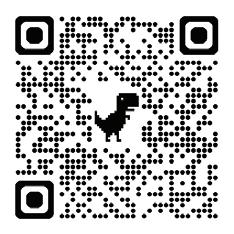
The organization operates without any federal or state funding, relying on community donations to keep its programs afloat. Every dollar raised goes directly toward the youth they serve, helping to create happy memories, develop life skills and provide essential mental health support.
Courage MKE
1322 S. 10th St. 414-240-2882 couragemke.org
Courage MKE’s latest initiative, the C2 Apartments, is a new housing program for young adults aging out of foster care or the juvenile system. The facility, opened in April, is staffed around the clock, offering life-skills training and therapeutic support that
“There are so many children out there that have no one,” says Schlaikowski. “Our goal is to one day not have to exist, meaning that we can get the state and our communities to step up and take care of these kids that need our support.”
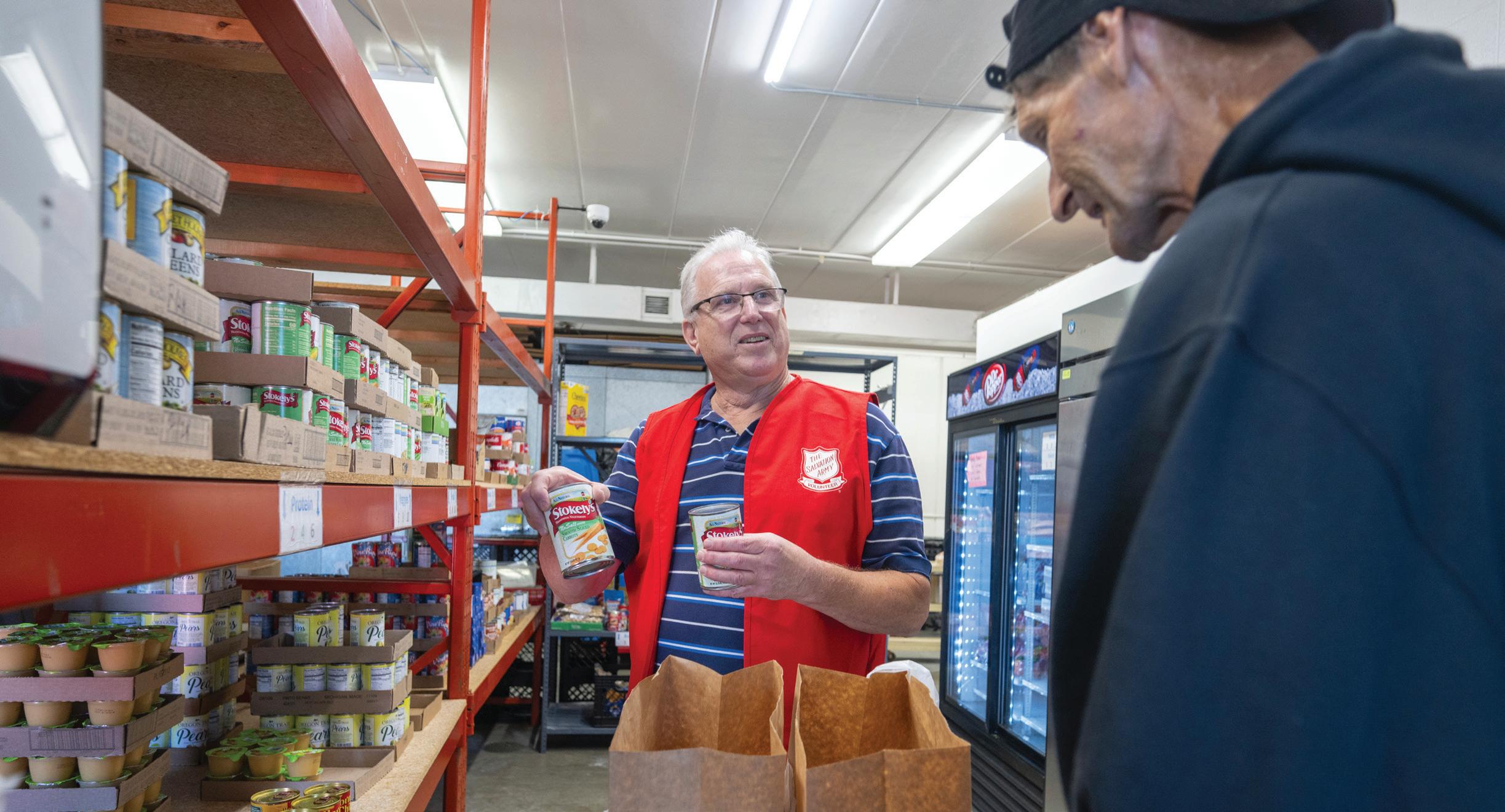
AS THE CHRISTMAS SEASON approaches, The Salvation Army is gearing up for its biggest fundraising effort of the year. The annual Christmas Campaign, which runs through Dec. 31, aims to raise $3.5 million. Of that total, over $400,000 is expected to come from the iconic bell-ringers collecting donations with their red kettles you’ll see outside grocery stores and shops.
“Love beyond” is a guiding principle for The Salvation Army. The organization’s goal is to provide community members with love beyond their circumstances, including eviction, homelessness, food insecurity, addiction, hopelessness and fear.
individuals through its five food pantries, offered 73,996 meals to children through its Feed the Kids program, and assisted 858 patients at its health clinic.


Community donations are foundational to all that work. Beyond donating cash at the kettles, individuals can use a “tap to give” feature, to donate from a credit card. For those looking to contribute from anywhere, donations can be made directly on their website or via text by sending “MKE” to 24365. Eightyfour cents of every dollar donated to the Salvation Army goes directly to someone in need.
Over the past year, the organization provided 34,835 nights of shelter at its Emergency Lodge in Milwaukee, served 27,540
“We’re making it easier than ever to give because every donation helps support our programs and impact lives across Milwaukee,” says Major Beverly Gates, Milwaukee Area Commander for The Salvation Army.
The Salvation Army is a worldwide charitable organization. Milwaukee County is home to four of the Salvation Army’s worship and community centers, three thrift stores, five food pantries, a homeless shelter and an adult rehabilitation center.
Salvation Army services provide food, shelter, emergency disaster relief, rehabilitation, summer programs for children, spiritual enrichment and more.
Donor money is used to support programs and services, including backpacks and school supplies for kids, coats for kids and adults, summer meals for kids and adults, toys, Christmas Family Feast, immediate emergency assistance, and relief for disaster victims. The annual Red Kettle Campaign is the largest fundraising campaign of the year. If you would like to donate your time, please visit RegisterToRing.com to be a bell-ringer.
11315 W. Watertown Plank Rd., Wauwatosa 414-302-4300 SAMilwaukee.org

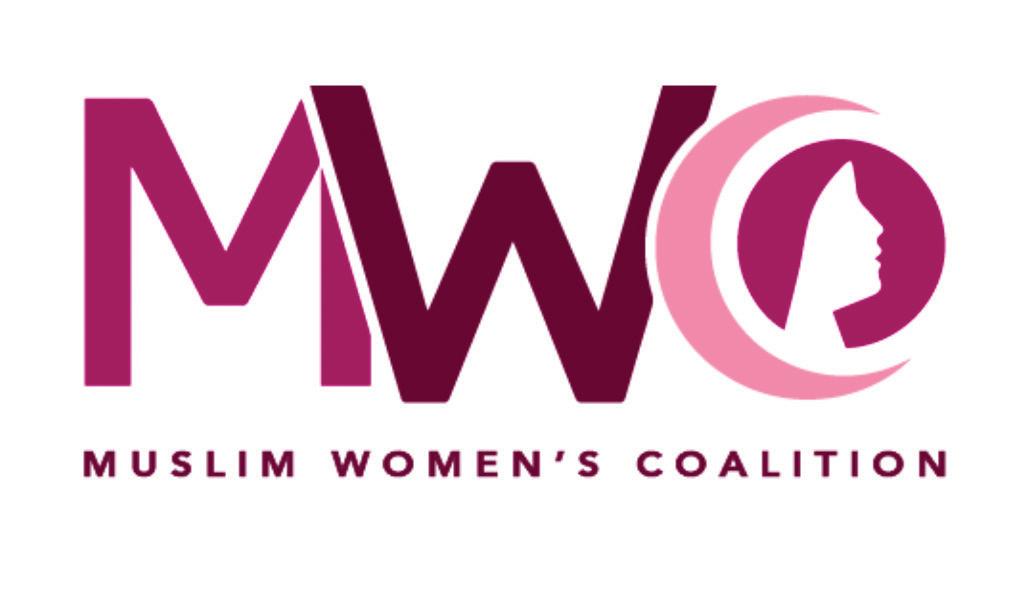
The Muslim Women’s Coalition leads positive community change through advocacy, dialogue, education and outreach, and uplifts women and girls, including many new immigrants and refugees as the organization works to shape an equitable public sphere.
Donations support many MWC programs, including culturally specific domestic violence programming, leadership and youth initiatives, Afghan women’s sewing classes, anti-racism advocacy and nurturing spaces for girls.
MWC has an active speakers bureau and lending library, and publishes the Wisconsin Muslim Journal, hosts the Milwaukee Muslim Film Festival, and provides numerous opportunities for dialogue and understanding. These efforts are supported by community donations.
Muslim Women’s Coalition
5235 S. 27th St. 414-727-4900 mmwconline.org
“ WE ’ RE TRYING TO create a society that is welcoming, that is not polarized, but really cherishes the uniqueness of every person, because that’s really what is enriching our life and enriches our country,” says Janan Najeeb, president of the Muslim Women’s Coalition.
For three decades, the Muslim Women’s Coalition (formerly the Milwaukee Muslim Women’s Coalition) has worked to empower Muslim women and girls throughout the greater Milwaukee area. The organization offers programming for young people in schools, particularly immigrants and refugees, supporting them as they get accustomed to their new country – and that’s just the start.
resources, an online newspaper, film festival and more. The domestic violence program, called Our Peaceful Home, provides culturally specific education, safety planning, intervention, emergency housing, advocacy and qualified interpreters for victims and survivors.
In 2025, the coalition is rebranding and growing. With increased outreach, it hopes to expand its programming to support more people.
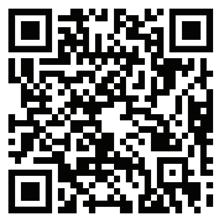
MWC also offers art therapy, networking opportunities, reading and writing programs, sewing circles, mentorship, educational
“We get the most out of each donation,” says Najeeb. “We are a small nonprofit, so we have become used to using each donation to the fullest. Much of the community support goes to women and girls who may need additional resources to help them become selfsufficient. We do a lot of work with immigrants and refugees to help them really become important and successful members of society.”